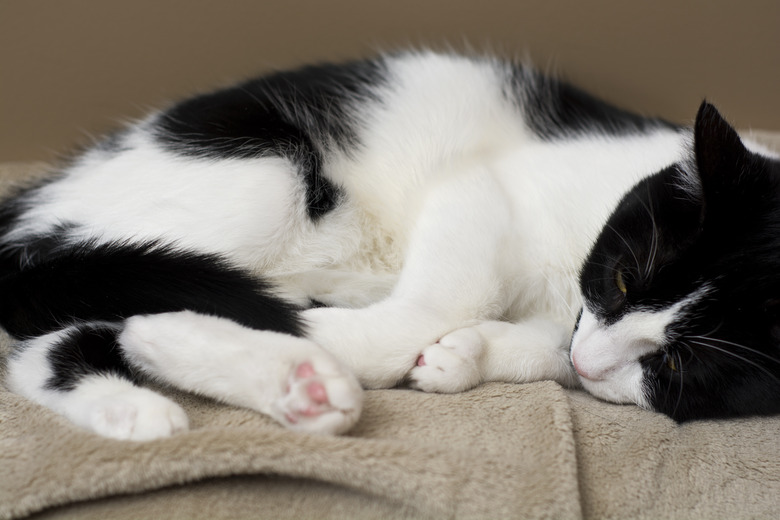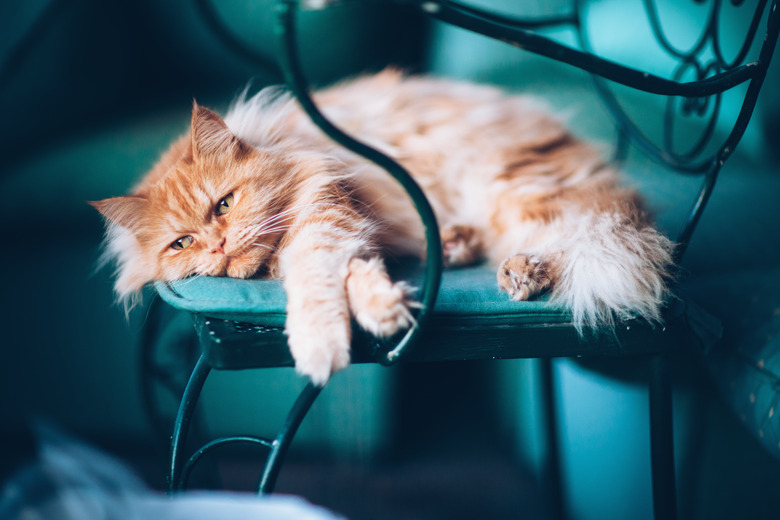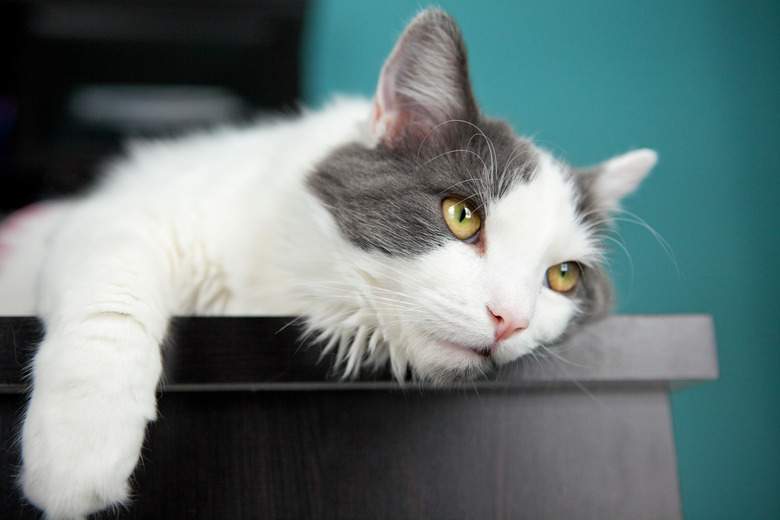What To Do For A Cat That Has A Stomach Ache
Cats with stomach aches may vomit repeatedly, develop flatulence, abdominal pain, diarrhea, and lose their appetite. While in mild cases, home remedies may be helpful, it is highly recommended to consult with a veterinarian should the cat appear sluggish, dehydrated, and not interested in its surroundings. Kittens should always be seen promptly because they can deteriorate quickly.
Giving cat's tummy a break
Giving cat's tummy a break
Sometimes, treating gastroenteritis in cats means taking a break from their regular diet. Felines with stomach discomfort may feel much better once the stomach is given a good rest. Pick up all food and do not offer anything other than fluids — more on that below — by mouth for about 12 hours for adult cats.
Food for your cat's sensitive stomach
Food for your cat's sensitive stomach
Once the fasting period is over and the cat is no longer vomiting, the cat can be offered a bland diet consisting of meat baby food with no onion or garlic listed in the ingredients. Keep it simple. A little bit of boiled rice with a few pieces of skinless and boneless chicken can give your feline fuel and help settle their tummy. These foods should be given in small portions throughout the day for three to four days, before returning to your cat's normal diet.
Hydrating cats with stomach aches
Hydrating cats with stomach aches
Cats affected by a stomach ache accompanied by vomiting and/or diarrhea may get dehydrated easily. Unflavored Pedialyte may be given to help replace lost electrolytes, though fluids should not be given if this causes further vomiting. Offering ice chips to be licked can be a better option in these cases to help with hydration.
Hairball Remedies for cat tummy troubles
Hairball Remedies for cat tummy troubles
If a cat keeps on gagging, loses its appetite, and appears to be in discomfort, it could have a hairball. There are several hairball remedies available at pet stores, from treats to supplements. There are also many home remedies that can help clear things up for your feline. A little bit of butter or oil from a can of tuna may help, or pumpkin puree can be fed with your cat's meal.
Cat stomach issues can cause dehydration
Cat stomach issues can cause dehydration
Cats should be checked for signs of dehydration especially when affected by vomiting and diarrhea. This can be done by lifting the skin over the shoulder blades — if the skin springs back into position promptly, hydration levels are good; if the skin takes a few seconds or remains lifted, the cat may need fluids administered under the skin or into a vein by the veterinarian. Dry gums, panting, less urination, and eyes that appear sunken are also warning signs that your feline needs to be treated for dehydration soon as possible.
Things to consider with sick cats
Things to consider with sick cats
Once your cat starts feeling better, the regular diet may be gradually reintroduced over the course of a few days. Going back to their normal meals too abruptly may cause a relapse of symptoms. Cats that do not feel better or appear dehydrated and lethargic should be seen by a veterinarian right away.


